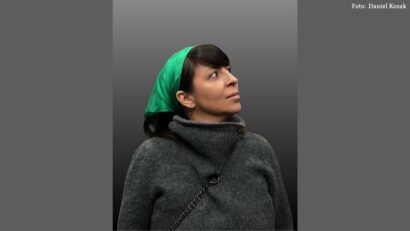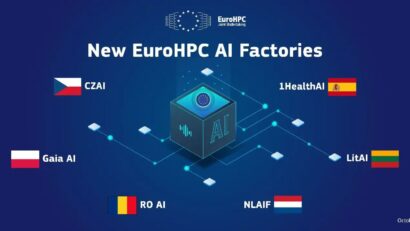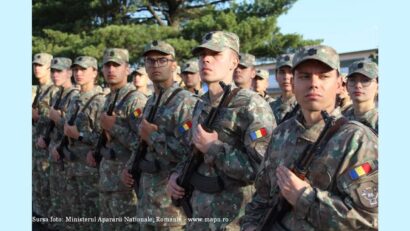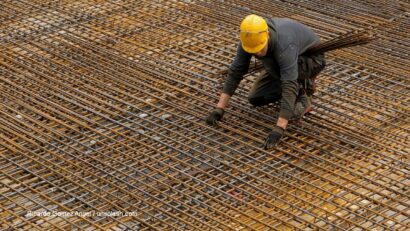A Different Kind of Artistic Education
Bucharests rural outskirts in recent years have become extremely attractive for some young families who wanted to change the Capital citys pollution and hubbub for a quieter, cleaner life, that kind of life that is closer to many of the peasant traditio

Christine Leșcu, 19.08.2015, 14:30
Bucharest’s rural outskirts in recent years have become extremely attractive for some young families who wanted to change the Capital city’s pollution and hubbub for a quieter, cleaner life, that kind of life that is closer to many of the peasant traditions among which several crafts. For instance, sculptor Virgil Scripcariu and his wife, art historian Adriana Scripcariu have been living since 2006 in the village of Piscu, located 36 kilometers from Bucharest. In the past, Piscu used to be famous for the great number of potters who lived there. The area’s artistic tradition, the quiet plains around, the fresh air as well as the Tiganesti monastery lying close by prompted these two persons with artistic interests to build in the village of Piscu a home for themselves and their six children. Speaking now is Adriana Scripcariu herself, sharing with us the reasons why they left Bucharest: ”For us, moving away from Bucharest was something we had to do. When we made the decision, we already had two children and felt we were unable to offer them in the city what we can offer them here: a less polluted environment, fresh, organic food, and spending many hours outside. Moreover, my husband, who is a sculptor, needed a workroom. So we looked for a quieter place, close to Bucharest, since we also need the city in our proximity. And we found that village. It so happened that it is a potters’ village, and we were very happy with that. Given all that, we have created what you can now see here, eight years since we’ve moved to this place.”
Once they settled in Piscu in 2006, Adriana and Virgil Scripcariu founded the “Gaspar, Balthazar and Melchior” Association. Then they started running educational and cultural projects, mainly targeting the children in their community. And surprisingly, potters’ workshops were among the main projects were run in Piscu.
With details on that, here is Adriana Scripcariu again: ”An obstacle we found was that the generation of children we found in the village totally ignored the history of their village. They didn’t know anything about the pottery craft. Although their grandparents had all been potters, they had never touched a potter’s wheel. That was a gap between generations that we could not accept, so we began by holding summer schools, focusing on various crafts, mainly pottery, in which the children of the village very enthusiastically took part. Besides the pottery workshops we also gave them brief art history lessons. Then we moved on to other crafts. In the meantime we were asked to set up workshops for children who were not from the village, as well as for grown-ups.”
Virgil Scripcariu was the favorite student of another great sculptor, Vasile Gorduz. In his 40s, Virgil Scripcariu has acquired a lot of fame, at home and abroad. Scripcariu took part in the Architecture Biennale in Venice in 2008, with his own versions of the little stool of Rudari, traditionally the gypsies who back in the Middle Ages were known as extremely skilled wood craftsmen. Also, Scripcariu was a finalist for the Great Prometheus Prize for Opera Prima in 2009. Scripcariu is also the author of “Maternity”, a sculpture placed in front of the Anglican Church in Bucharest. Maternity is also the theme of Scripcariu’s most recent solo exhibition, “Supermam”, which has been recently inaugurated in London. In the village of Piscu, Virgil Scripcariu found the peace he needed and also the impetus for his work, since he was surrounded by the tradition of a craft similar with his.
Speaking now is Virgil Scripcariu: ”Ever since we’ve moved to Piscu, we discovered a special ability of the villagers living here, the ability to understand and finalize a work using various techniques. That comes from the genetic legacy of the village, the fact that they have been making pottery for generations! The phenomenon is very interesting to me, and I believe there are such communities left in Romania, whose creative potential has not been discovered or put to good use.”
Pottery is not lucrative, and in time most of the families in Piscu gave up the craft. Unfortunately, neither the pottery workshops held by the Scripcariu family, nor the children’s enthusiasm persuaded villagers to resume the pottery tradition.
With details on that here is Virgil Scripcariu again: ”I worked with a potter who had not been making pottery for 25 years. Working with him, I discovered he was one of the most talented and skilled villagers. There are many other villagers who still master the craft, but they are no longer practicing pottery because there is no market for their work. Many of them lost interest and even their skill. But there are older villagers who kept their wheels and kilns and still do a bit of work, every now and then, out of inertia. There are also those in their 50s who could practice the craft, but starting from scratch with no prospects whatsoever, is discouraging for everybody. (…) There is neither encouragement nor appreciation for this craft, because people do not look at these activities as opportunities. I am sure that in 20 years’ time people who can make pottery or weave using traditional methods will be viewed as artists.”
In 2011 Adriana and Virgil Scripcariu found a new opportunity. The village school was closed down which gave them the opportunity to open a new primary school called Agatonia. Although it is a private school, in the first 3 years tuition was free of charge. In the past year however fees were introduced but only for those who could afford to pay. 2015 is a special year for Agatonia school since it boasts the first generation of 4th grade graduates. What did these children learn in Agatonia school?
Adriana Scripcariu will give us the answer: “Agatonia is a normal school in terms of its curriculum. What is special about it is that it is located in a potters’ village and that we, the coordinators of the school, have artistic interests. I am an art historian and my husband is a sculptor. The school is located near a sculpture studio, near the Tiganesti monastery, so children have the chance to see different forms of art. I hope this will help them form an artistic taste, in time, and learn to appreciate their cultural heritage.”
Adriana and Virgil Scripcariu intend to carry on with the projects started in Piscu, hoping that art and pottery will attract more and more children and young people.






























